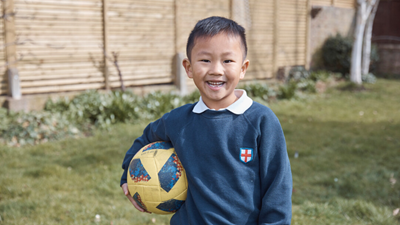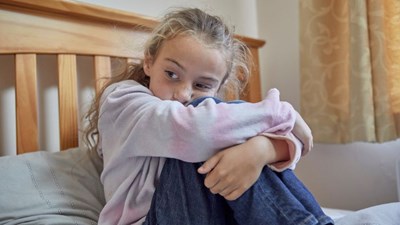We're here to protect children from harm. It can be hard to know when extreme views become something dangerous. And the signs of radicalisation aren't always obvious.
It might be nothing, it might be something. But whatever you're worried about, we're here to help.
Worried about a child?
Contact our Helpline by calling 0808 800 5000 or emailing help@NSPCC.org.uk.
Spotting the signs of radicalisation
Radicalisation can be really difficult to spot. Signs that may indicate a child is being radicalised include:
- isolating themselves from family and friends
- talking as if from a scripted speech
- unwillingness or inability to discuss their views
- a sudden disrespectful attitude towards others
- increased levels of anger
- increased secretiveness, especially around internet use.
Children who are at risk of radicalisation may have low self-esteem, or be victims of bullying or discrimination. Extremists might target them and tell them they can be part of something special, later brainwashing them into cutting themselves off from their friends and family.
However, these signs don't necessarily mean a child is being radicalised – it may be normal teenage behaviour or a sign that something else is wrong.
Get support from our helplines
We provide help and support to adults worried about the radicalisation of a child. We'll listen to your concerns, help you recognise the warning signs and, where possible, highlight local support services that are available.
We're also letting children know that they can contact Childline if they're worried that they're being influenced by other people or if they're worried about terrorism.
Our helplines offer a safe, non-judgmental space where adults and children can talk to us confidentially. However, if a child was thought to be at significant risk of harm, we would alert the appropriate authorities, as we would in any case where a child's safety is in serious question.
Talking about terrorism
Children are exposed to news in lots of different ways and what they see can worry them. Our tips can help you have a conversation with your child.
- Listen carefully to their fears and worries.
- Offer reassurance and comfort.
- Avoid complicated and worrying explanations that could be frightening and confusing.
- Help them find advice and support to understand distressing events and feelings.
- Children can always contact Childline free and confidentially on the phone and online.
Watch this video to see how 3 parents answered their children's questions about terrorism.
Dealing with bullying and abuse
It’s important to address bullying and abuse following terrorist attacks.
- Some children may feel targeted because of their faith or appearance
Look for signs of bullying, and make sure they know they can talk to you. Often children might feel scared or embarrassed, so reassure them it's not their fault this is happening and they can always talk to you or another adult they trust. Alert your child’s school so they can be aware of the issue. - Dealing with offensive comments about a child’s faith or background
If you think your child is making unkind or abusive comments, it’s important to intervene. Calmly explain that comments like this are not acceptable. Your child should also understand that someone’s beliefs don't make them a terrorist. You could ask them how they think the other child felt, or ask them how they felt when someone said something unkind to them.






